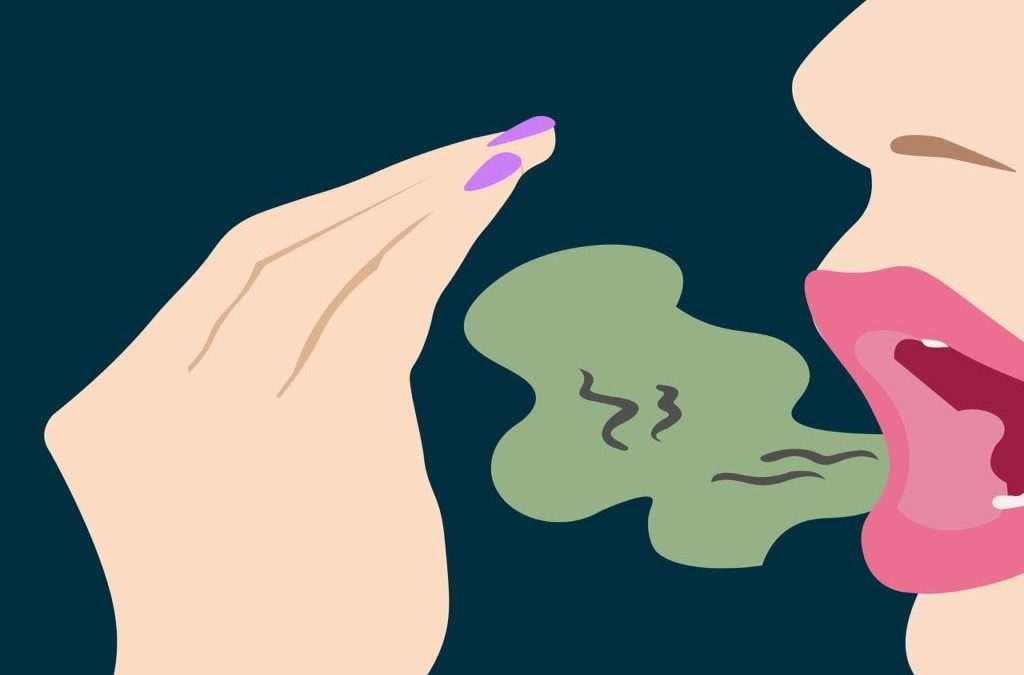With around 200,000 people being diagnosed with Type 2 diabetes each year and a projected five million people living with the disease in the UK by 2025 if habits do not change, it’s a good time to address a common ailment associated with diabetics – bad breath.
Bad breath is a common side effect of type 1 & 2 diabetes, so much so that researchers have previously found that analysing a person’s breath can help to identify prediabetes (when diabetes is in its early stages).
(1/2) New analysis released by us for Type 2 Diabetes Prevention Week shows more than 4.9 million people are living with diabetes in the UK, with 90% of those living with type 2: https://t.co/TkGfSglMtv
— Diabetes UK (@DiabetesUK) May 11, 2021
Type 1 & 2 diabetes can cause bad breath as both these conditions cause high blood sugar levels, which then increases glucose levels in saliva.
This then provides food for bacteria in the mouth and can lead to the build-up of dental plaque. If plaque is not removed effectively tooth decay and gum disease may occur, which also causes halitosis (bad breath).
Another reason diabetics may also be more susceptible to bad breath is that diabetes can cause ketoacidosis, which is where the body burns fat instead of glucose if there is too little insulin in the blood, or if insulin resistance is too high. Ketones then form as a waste product, which can then cause an unpleasant smell on the breath.
Here are 5 ways to prevent bad breath from occurring, according to the experts…
- Avoid harsh soap in toothpaste
“Brushing helps eradicate the plaque and bacteria on your teeth, however some toothpastes contain sodium lauryl sulphate (SLS), a soapy detergent that creates foam but has no cleaning benefit. The additive has recently been linked to serious side effects including mouth ulcers.
Many people completely forget about their gums when cleaning their teeth and just concentrate on the teeth themselves. This is obviously important to prevent cavities, but you should also clean along the gum line (where your teeth meet your gums) at least twice a day to help prevent gum disease.
Try to keep the toothpaste in contact with the gums for as long as possible and avoid rinsing with water. Don’t forget to clean in between your teeth with interdental brushes or floss in addition to your normal brushing.
Flossing is an extra step, but it’s an important one, as it helps gets in between the teeth where toothbrushes sometimes miss,” advises dentist, bacteriologist and founder of The Breath Company Dr Harold Katz.
- Soothe your stress levels
“When individuals find themselves in high-stress circumstances, their bodies react by using the sympathetic nervous system as a form of protection.
This system essentially triggers the fight-or-flight response mechanism, providing you with a boost of energy so you can react quickly to the situation.
In cases of chronic stress, your body is kept in “fight or flight” mode and conserves energy by turning off certain digestive functions, such as the production of saliva.
The mouth then produces a lower level of saliva – saliva is mandatory for moistening food for easier digestion, but the body deems it unnecessary in critical situations.
“Saliva evaporates and the mouth becomes dry, leading to bad breath. This happens because the odorous gases created by bacteria in the mouth, which are generally suppressed by spit and swallowed away, are free to be released into the air.
Additionally, bacteria are much more likely to stick to the surfaces of a dry mouth, which can further enhance the sour smell,” explains Dr Harold Katz.
- Stimulate your saliva
Even if you’re not feeling stressed, a common early symptom of Type 2 Diabetes is having a dry mouth. “This can not only cause serious discomfort but also a bitter taste, as well as bad breath due to the mucus membranes drying out.
To boost your saliva production between meals, enjoy Grether’s Pastilles which essences of sun-ripened berries and blossoms, glycerine and high-quality agar-agar, which help to prevent dry mouth from occurring.
Grether’s Pastilles are available in four deliciously intense fruity flavours, including blackcurrant, elderflower, blueberry and red currants.
Each flavour is available as traditional or sugar-free in 60g tin (£3.99), 110g tin (£5.99), 440g tin (£19.99) or 100g refill pouch (£4.23) from allcures.com,” recommends Superintendent Pharmacist Jagdeesh Cheema of allcures.com.
- It’s time for an alcohol-free rinse
“Regular and specific application of alcohol-free mouth rinses such as The Breath Co. Healthy Gums Oral Rinse (£7.00, Boots) will help calm the gum area and work to both eliminate germs associated with gum disease and reduce the formation of biofilm, which can lead to plaque and tartar build-up.
It’s important to steer clear of alcohol-based mouthwashes as these can cause dry mouth, and just mask odours rather than killing off bacteria,” explains Dr Harold Katz.
- Switch up your toothbrush
“Out with the old and in with the new (toothbrush). Dentists emphasise that if you hold on to your dirty brush for longer than three months, the bad bacteria lodged on the bristles may transfer back into your mouth.
It is recommended that you swap out brushes, or bristle heads, for electric toothbrushes every two to three months,” recommends Dr Harold Katz.
Mark on your calendar when it’s time for a new toothbrush, so you don’t forget – your breath may well thank you for it!
